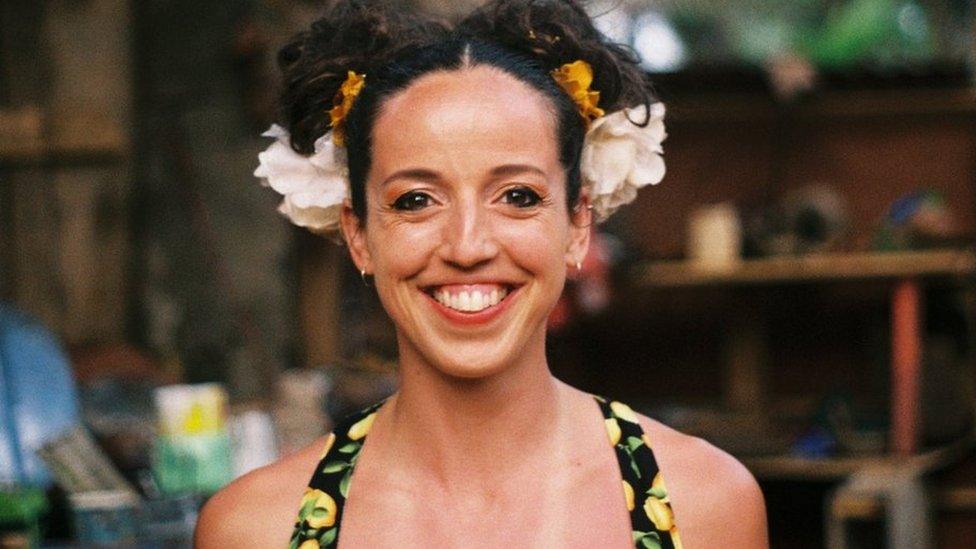Endometriosis: 'There's a fire inside my uterus'
- Published
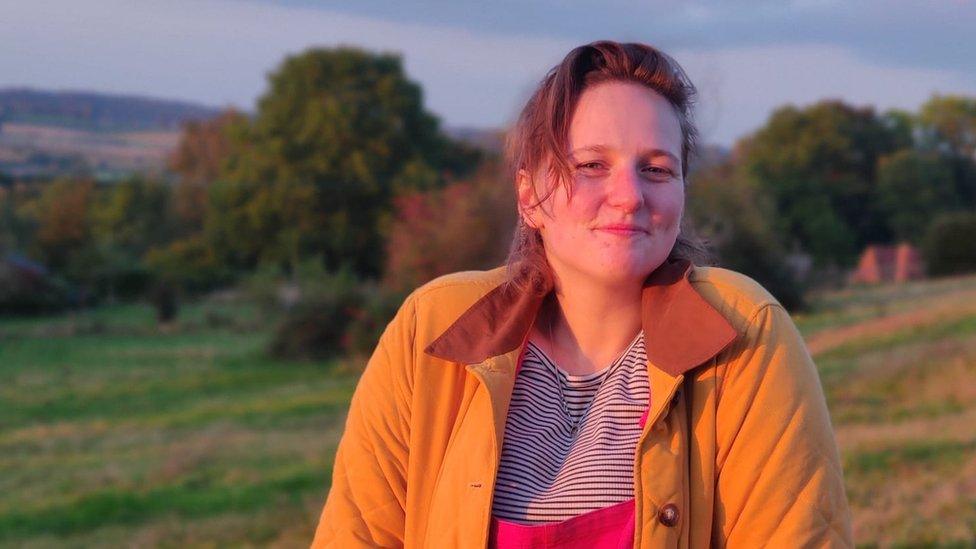
Megan Morgan was diagnosed with endometriosis during the pandemic
Heavy periods, debilitating pain and infertility - those are some of the symptoms of endometriosis, a condition that affects one in 10 women of any age in the UK.
On average it takes eight years to receive a diagnosis - a figure, according to the charity Endometriosis UK, that's not changed in a decade.
There is no known cause or cure.
But what is it really like living with the gynaecological condition?
Two women shared their story for Endometriosis Awareness month.

What is endometriosis?
It's where tissue similar to the lining of the womb grows elsewhere inside the body - often around reproductive organs, bowel and bladder
Like the womb lining, tissue builds up every month then bleeds
However, unlike a period, there is no way for the blood to escape
The build-up of trapped blood can result in internal lesions and scar tissue
Some women experience no symptoms but for many others the pain can be debilitating, and the condition can lead to infertility
There is currently no known cause or cure for the condition.

Megan Morgan, who lives in Bristol, was diagnosed with the condition in 2021 after noticing pain outside of her period, something that had never happened before.
Ms Morgan said it was so bad one night she woke up with crippling pain in her uterus and ovaries and thought she was haemorrhaging.
The 26-year-old said she then went to see an older female GP who made her feel like she was "going mad" and a burden, after trying to say her symptoms were normal.
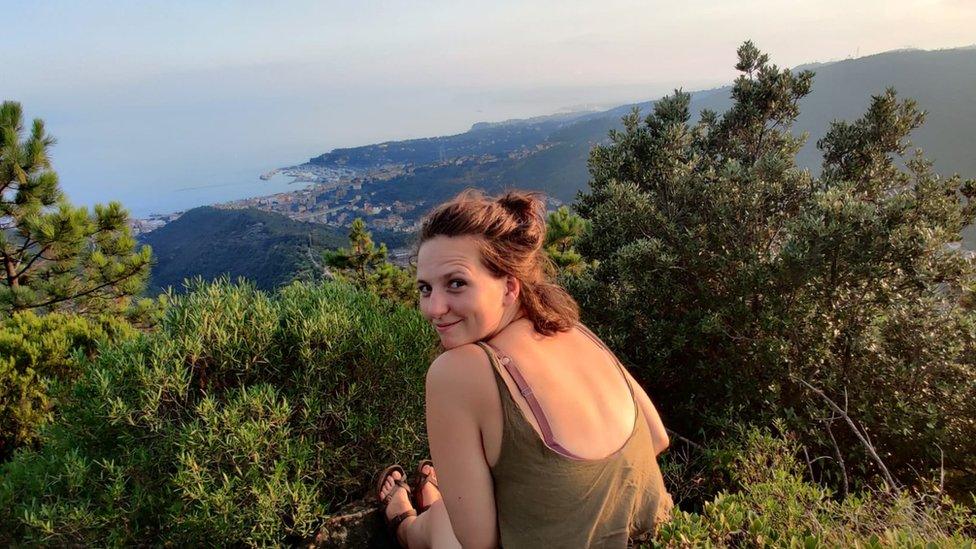
Megan Morgan said the pain was so bad one night, she woke up thinking she was haemorrhaging
"I just cried on her and after crying she was like 'oh well, I guess we can do a scan if you insist'," she said.
"You start to think maybe you are right, maybe this is normal, maybe I should be in this much pain," she added.
It was after the scan that she was diagnosed with endometriosis.
Stoma and infertility
Ms Morgan, who also has ulcerative colitis, a long-term condition where the colon and rectum become inflamed, said one of the hardest parts of diagnosis was grieving your health and learning to accept a new reality.
"When I got diagnosed with ulcerative colitis I just felt so alone. I was 20 and I was the illest person I knew."
"I knew people who'd gone through grief at my age but they didn't really get the grief of losing your health."
Therefore, she said when she was diagnosed with endometriosis, she knew what the "journey was going to look like" and immediately got therapy.
"At some point with ulcerative colitis, I may have to have a stoma. With endometriosis, I may be infertile or may need to have parts of my uterus and ovaries removed," she added.
Despite that, Ms Morgan, who is studying a PhD in endometriosis and chronic pain, said her biggest concern was how the condition would limit her future.
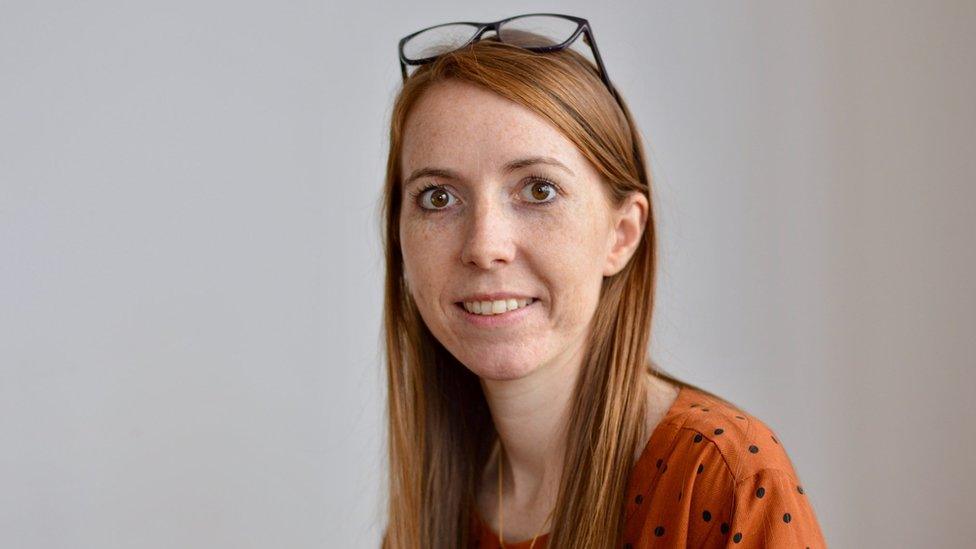
Victoria Hatton said she suffered sickness, severe back ache and leg pain before a laparoscopy found endometriosis tissue in her diaphragm
Victoria Hatton, from Churchdown, Gloucestershire, was put on the contraceptive pill at the age of 14, after her periods made her physically sick.
"It didn't help," the 31-year-old said.
She said she kept going back and forth to her GP, complaining of aching legs and severe back pain before her period but they kept asking if she'd "pulled a muscle".
Ms Hatton said a lack of knowledge and symptoms of endometriosis made her question whether she was over-thinking it and the symptoms were all in her head.
"I would always have lower back ache, I'd be sick with the pain and I would have leg aches where my legs would give way. My upper back and neck would ache."
'On my own'
Ms Hatton was eventually diagnosed with the condition at the age of 19 after a laparoscopy, an operation in which a camera is inserted into the pelvis via a small cut near the navel, that showed endometriosis tissue in her diaphragm.
Knowing only one other person with the condition at the time, Ms Hatton said they told her it could make her infertile.
"I didn't have the full knowledge of what it was," she said. "I felt quite on my own with it. I didn't go to any support groups because there weren't any around."
Following her last surgery in August 2021, Ms Hatton, alongside her friend Hannah Buchanan-Hughes, decided to set up an endometriosis support group in Gloucestershire after finding the closest one to her was all the way in Birmingham. They hope to start face-to-face meetings next month.
Ms Hatton added it was really important "people from a young age need to know that there is support out there", and that "they can talk to their GP, without feeling that they're going with an unnecessary problem".
Correction Sunday 27 March: This article has been amended to make it more clear for audiences.

Follow BBC West on Facebook, external, Twitter, external and Instagram, external. Send your story ideas to: bristol@bbc.co.uk , external
Related topics
- Published17 March 2022
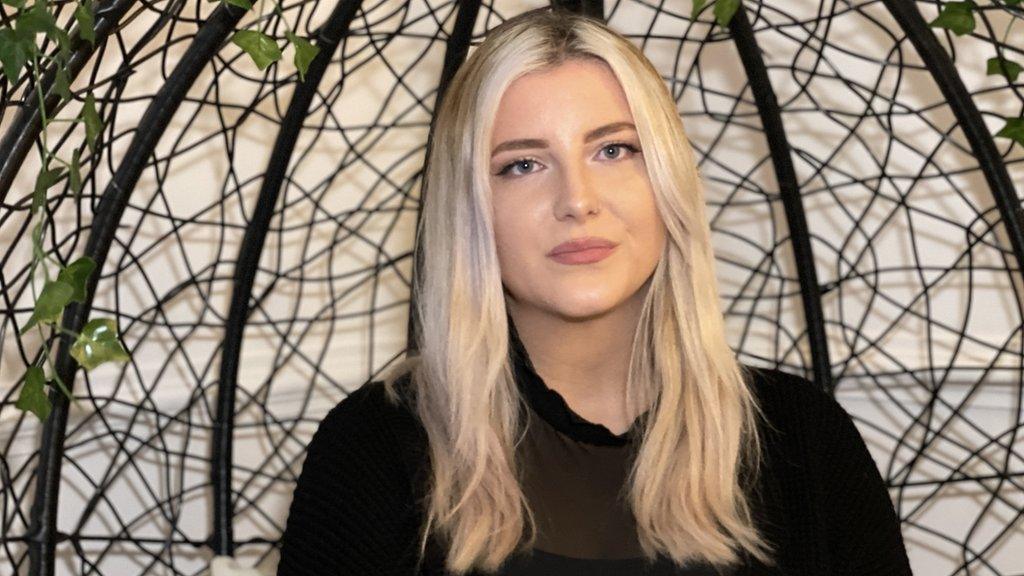
- Published9 March 2021
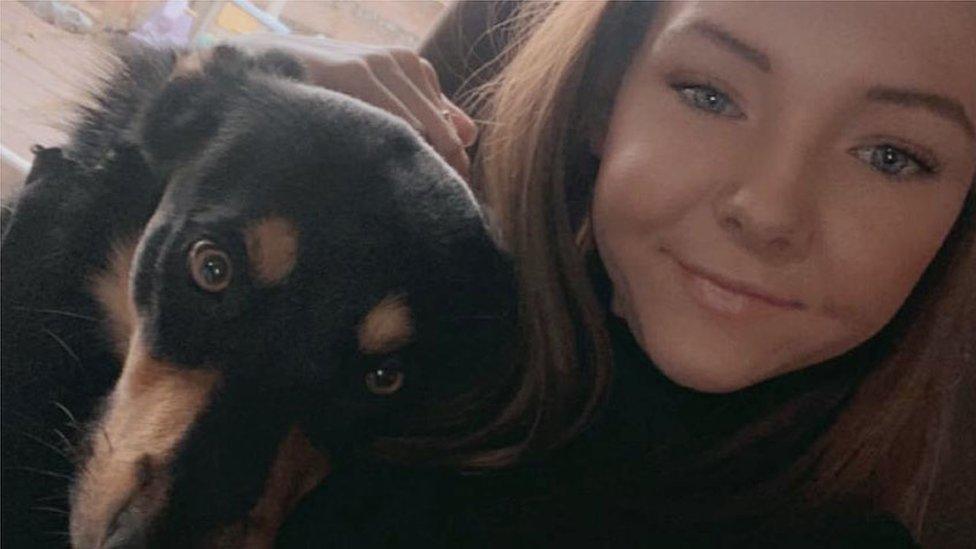
- Published25 February 2022
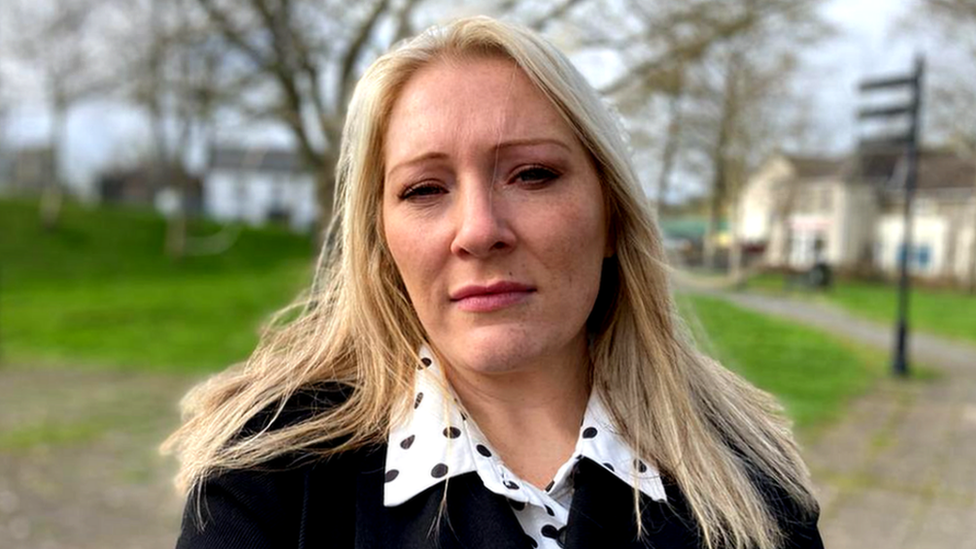
- Published30 January 2022
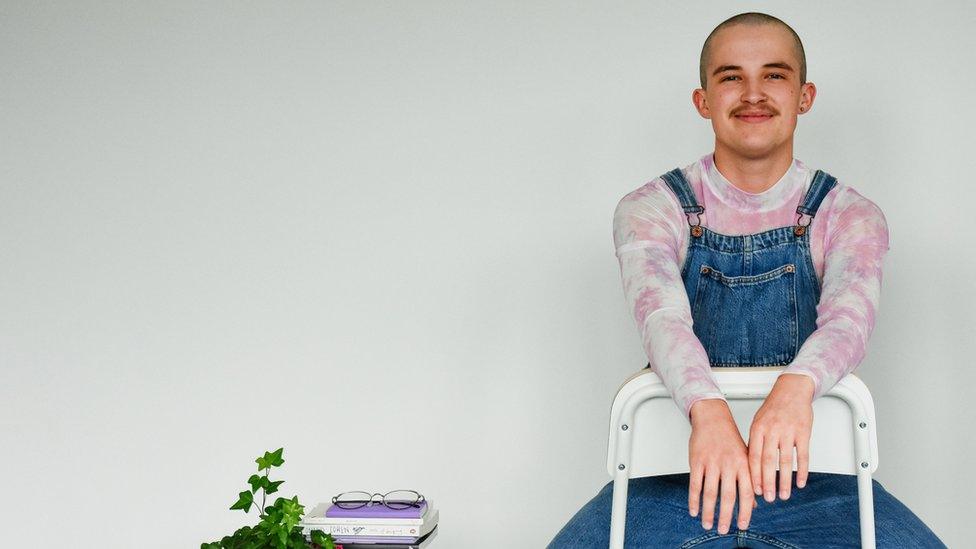
- Published3 October 2021
